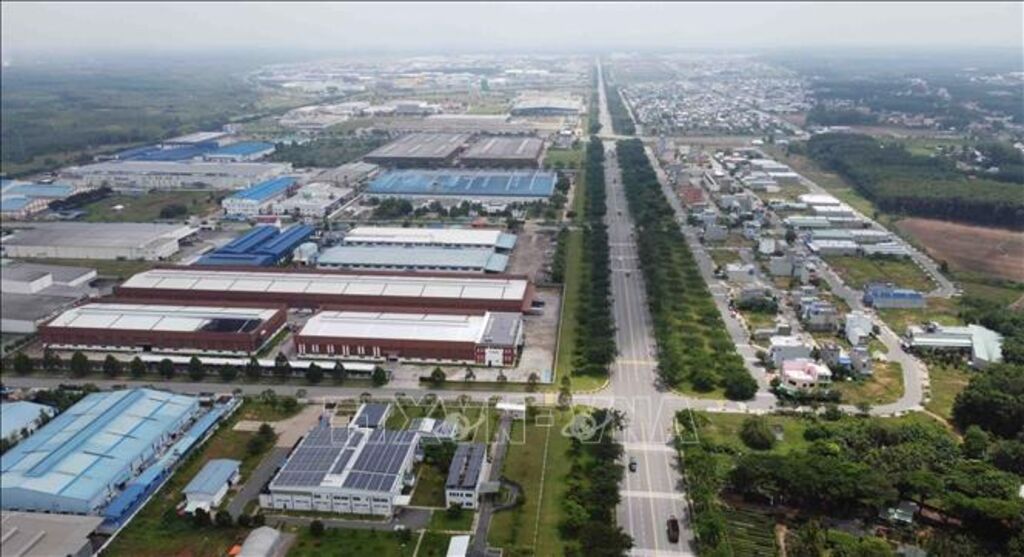 |
| Responsibilities previously assigned to district-level administrations will be clearly reallocated to either commune-level or provincial-level authorities, depending on the nature and scope of the tasks__Photo: VNA |
The Ministry of Finance (MOF) is finalizing a draft decree detailing the allocation of authority to local authorities under the two-tier administrative model, covering sectors within the Ministry’s jurisdiction. The goal is to ensure uninterrupted state management during the transition and to establish a legal foundation that allows localities to serve residents and businesses more effectively.
Consisting of eight chapters, the draft decree specifies the delineation of powers across key areas, including development investment, procurement, public assets, taxation, pricing, insurance, management of household and cooperative businesses, and sanctioning of administrative violations. Responsibilities previously assigned to district-level administrations will be clearly reallocated to either commune-level or provincial-level authorities, depending on the nature and scope of the tasks. This approach aims to avoid disruptions to public services and ensure smooth continuity during the transitional period.
More importantly, this restructuring supports the broader agenda of substantive decentralization from central to local levels—granting grassroots authorities greater autonomy and accountability in line with the principle: “localities decide, act, and bear responsibility.”
Sector-specific reassignments
Under the draft decree, significant shifts in authority are proposed across a range of key sectors. In the field of public investment, the competence to appraise and approve public investment policy, as well as medium- and annual-term investment plans, which is now assigned to district-level administrations will be vested to provincial-level People’s Councils/People’s Committees. Provincial administrations may, in turn, delegate certain tasks to commune-level authorities. For investment projects that span multiple administrative units as a result of recent consolidations, the newly established local administrations at the corresponding level will be responsible for oversight. Importantly, any changes to local place names following the reorganization of government structures will not require revisions to existing investment decisions or plans.
In public procurement, once district-level administrations are no longer in place, commune-level People’s Committees will take over the former’s role in evaluating bidding dossiers and selecting investors and act as the bid solicitor or party in charge of making invitation for expression of interest. To support this transition, relevant decrees—including Decree No. 23/2024/ND-CP and No. 115/2024/ND-CP—will be amended to reflect the new structure.
Authority over public asset management, covering compulsory acquisition, requisition of assets, and management of public land, will be reassigned either to commune-level or provincial-level People’s Committees. Provincial-level Finance Departments will take over tasks previously assigned to district-level finance-planning divisions. Meanwhile, commune-level People’s Committees will perform the previous role of district-level administrations in relevant procedures.
The draft decree also redefines roles in tax administration, price regulation, and insurance oversight. Commune-level People Committee chairpersons will replace district-level People’s Committee heads in performing these functions, while certain responsibilities related to insurance will be transferred to the provincial level. Multiple legal documents, such as Decrees No. 125/2020/ND-CP, 126/2020/ND-CP, 85/2024/ND-CP, and 58/2018/ND-CP, are expected to be revised to align with this restructuring.
In the field of business registration, the authority to process registrations for household businesses, cooperative groups, cooperatives, and unions of cooperatives will be transferred from district-level registration bodies to specialized agencies or administrative organizations at the commune level.
Finally, administrative sanctioning powers in areas such as planning and investment, taxation, customs, pricing, accounting, and statistics will be conferred upon commune-level officials. This adjustment will be accompanied by revisions to the relevant regulatory documents to ensure coherence and avoid legal inconsistencies.
The decree is scheduled to take effect on July 1, concurrently with the amended Law on the Organization of Local Administration.- (VLLF)









